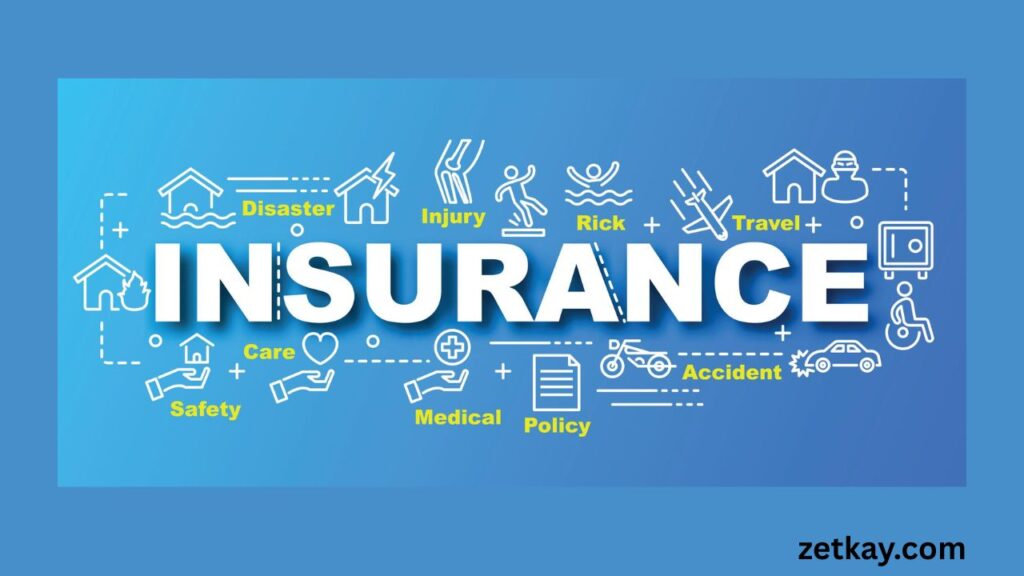Discover what insurance is, how it works, its types, and why it’s essential for financial protection. Learn about life, health, auto, home, and business insurance in this complete guide to make smart coverage decisions.
In today’s uncertain world, insurance plays a crucial role in protecting individuals, families, and businesses from financial loss. Whether it’s health, life, car, or home insurance, having the right coverage ensures peace of mind and financial stability during challenging times. In this comprehensive guide, we will explore what insurance is, its types, importance, how it works, and why it is essential in your financial planning.
Understanding the Concept of Insurance
Insurance is a legal agreement between an individual (the policyholder) and an insurance company. The policyholder pays a fixed amount known as a premium, and in return, the insurance company promises to compensate for any financial losses caused by unforeseen events such as accidents, theft, illness, or natural disasters.
Essentially, insurance is a risk management tool that transfers the financial burden of potential losses from the individual to the insurer. This allows people to manage uncertainties and secure their financial future.
How Does Insurance Work?
The working principle of insurance is based on risk pooling. When multiple individuals pay premiums, these funds are collected into a large pool. When a policyholder experiences a covered loss, the insurance company pays compensation from this pool.
Here’s a simple breakdown of how it works:
- Purchase of Policy – The insured selects a plan that fits their needs.
- Payment of Premium – The insured pays a regular premium (monthly, quarterly, or yearly).
- Filing a Claim – In case of a loss, the insured submits a claim to the insurance provider.
- Assessment of Claim – The insurer evaluates the claim to ensure it meets policy terms.
- Settlement – The insurer compensates the insured as per the policy coverage.
This system ensures that no single person bears a devastating financial loss alone.

Types of Insurance
1. Life Insurance
Life insurance provides financial support to your family in case of your death. It helps your loved ones cover expenses like debts, education, and daily living costs.
Types of Life Insurance:
- Term Life Insurance: Coverage for a specific period (10, 20, or 30 years).
- Whole Life Insurance: Lifetime coverage with an investment component.
- Endowment Plans: Provide both insurance and savings benefits.
2. Health Insurance
Health insurance covers medical expenses such as doctor visits, hospitalization, surgeries, and prescription drugs. It ensures that you can afford quality healthcare without depleting your savings.
Common Health Insurance Plans:
- Individual Health Plans
- Family Floater Plans
- Critical Illness Insurance
- Senior Citizen Health Plans
3. Auto or Car Insurance
Car insurance protects against financial losses due to accidents, theft, or damage to your vehicle. It is often a legal requirement in many countries.
Main Types of Car Insurance:
- Third-Party Liability: Covers damages to other people or property.
- Comprehensive Coverage: Includes damage to your vehicle as well.
- Collision Coverage: Pays for repairs after an accident.
4. Home Insurance
Home insurance protects your home and belongings from risks such as fire, theft, or natural disasters. It provides coverage for repair or replacement costs.
Types of Home Insurance:
- Building Insurance – Covers the structure of your home.
- Contents Insurance – Protects your furniture, electronics, and valuables.
5. Travel Insurance
When traveling, unexpected events like trip cancellations, lost luggage, or medical emergencies can occur. Travel insurance ensures financial protection during your journey, whether domestic or international.
6. Business or Commercial Insurance
Business insurance protects companies from potential financial losses due to property damage, lawsuits, or employee-related risks.
Common Forms Include:
- Property Insurance
- Liability Insurance
- Workers’ Compensation Insurance
The Importance of Insurance
Insurance is not just a financial product it’s a safety net that ensures stability in times of uncertainty. Here’s why it’s important:
1. Financial Security
Insurance helps you and your family remain financially stable during crises, ensuring you can handle emergencies without depleting your savings.
2. Peace of Mind
Knowing that you’re protected from potential risks reduces stress and anxiety about the future.
3. Encourages Savings
Some insurance policies, such as life or endowment plans, promote regular saving habits and help in wealth creation.
4. Business Continuity
For businesses, insurance plays a vital role in maintaining operations even after unexpected losses, ensuring long-term sustainability.
5. Legal Compliance
Certain insurances, like car or workers’ compensation, are mandatory by law in many countries, ensuring protection for all parties involved.
Key Elements of an Insurance Policy
Understanding your insurance policy is essential. Here are the key components:
- Premium: The amount paid regularly to maintain coverage.
- Coverage: The extent of protection offered by the policy.
- Exclusions: Events or conditions not covered under the policy.
- Deductible: The portion you must pay before the insurance covers the rest.
- Claim: The formal request made to the insurer for compensation.
How to Choose the Right Insurance Policy
Selecting the right insurance depends on your needs, lifestyle, and financial goals. Here are some tips:
- Assess Your Needs: Understand what you want to protect health, life, property, or business.
- Compare Policies: Review plans from different insurers and compare coverage and costs.
- Check the Insurer’s Reputation: Choose companies with strong claim settlement records.
- Read the Fine Print: Always understand exclusions, terms, and benefits.
- Consult an Expert: Seek professional advice for complex policies.
Common Myths About Insurance
- “Insurance is only for emergencies.”
In reality, insurance also serves as a long-term financial tool. - “Young people don’t need insurance.”
Starting early ensures lower premiums and long-term protection. - “All insurance policies are expensive.”
There are affordable plans available for all income levels. - “I don’t need health insurance if I’m healthy.”
Medical emergencies can happen anytime, and treatment costs are rising.
The Future of Insurance
With the rise of digital transformation, insurance is becoming more personalized, automated, and accessible. Online platforms and AI-driven tools now allow users to compare policies, calculate premiums, and file claims seamlessly. The future promises faster claim processing, better transparency, and innovative coverage options tailored to individual needs.
Final Thoughts
In summary, insurance is an essential part of modern financial planning. It protects you from unexpected losses, supports your family, and ensures long-term stability. Whether it’s life, health, home, or business coverage, the right insurance policy can safeguard your future and provide priceless peace of mind.
FAQs About Insurance
1. What is the main purpose of insurance?
The main purpose of insurance is to protect individuals and businesses from financial loss due to unexpected events like accidents, illness, or disasters. It ensures financial security and peace of mind.
2. What are the 4 main types of insurance?
The four main types of insurance are:
- Life Insurance
- Health Insurance
- Auto (Car) Insurance
- Home Insurance
These cover most financial risks individuals face in life.
3. Why is insurance important in life?
Insurance is important because it provides financial stability and peace of mind. It helps you and your family stay protected from unexpected financial burdens due to illness, death, or property loss.
4. What is the difference between life and health insurance?
Life insurance provides money to your family after your death, while health insurance pays for your medical expenses during your lifetime. Both protect you financially but serve different purposes.
5. How does an insurance policy work?
An insurance policy works through premium payments made by the insured. When a covered loss happens, the insured files a claim, and the insurance company compensates as per the policy terms.
6. What is a premium in insurance?
A premium is the amount of money you pay regularly (monthly, quarterly, or yearly) to the insurance company to keep your coverage active.
7. How do I choose the best insurance plan?
To choose the best plan:
- Assess your needs and risks
- Compare policies and prices
- Check the company’s reputation
- Understand terms, coverage, and exclusions
8. What happens if I stop paying my insurance premium?
If you stop paying your premium, your policy will lapse, meaning your coverage ends, and you will no longer be protected against financial risks.
9. Is insurance mandatory?
Some types, like car insurance and workers’ compensation, are legally required in many countries. Others, like life or health insurance, are optional but highly recommended.
10. What are the benefits of having insurance?
The main benefits include:
- Financial protection against loss
- Peace of mind
- Legal safety
- Business stability
- Encouragement of savings and long-term planning
